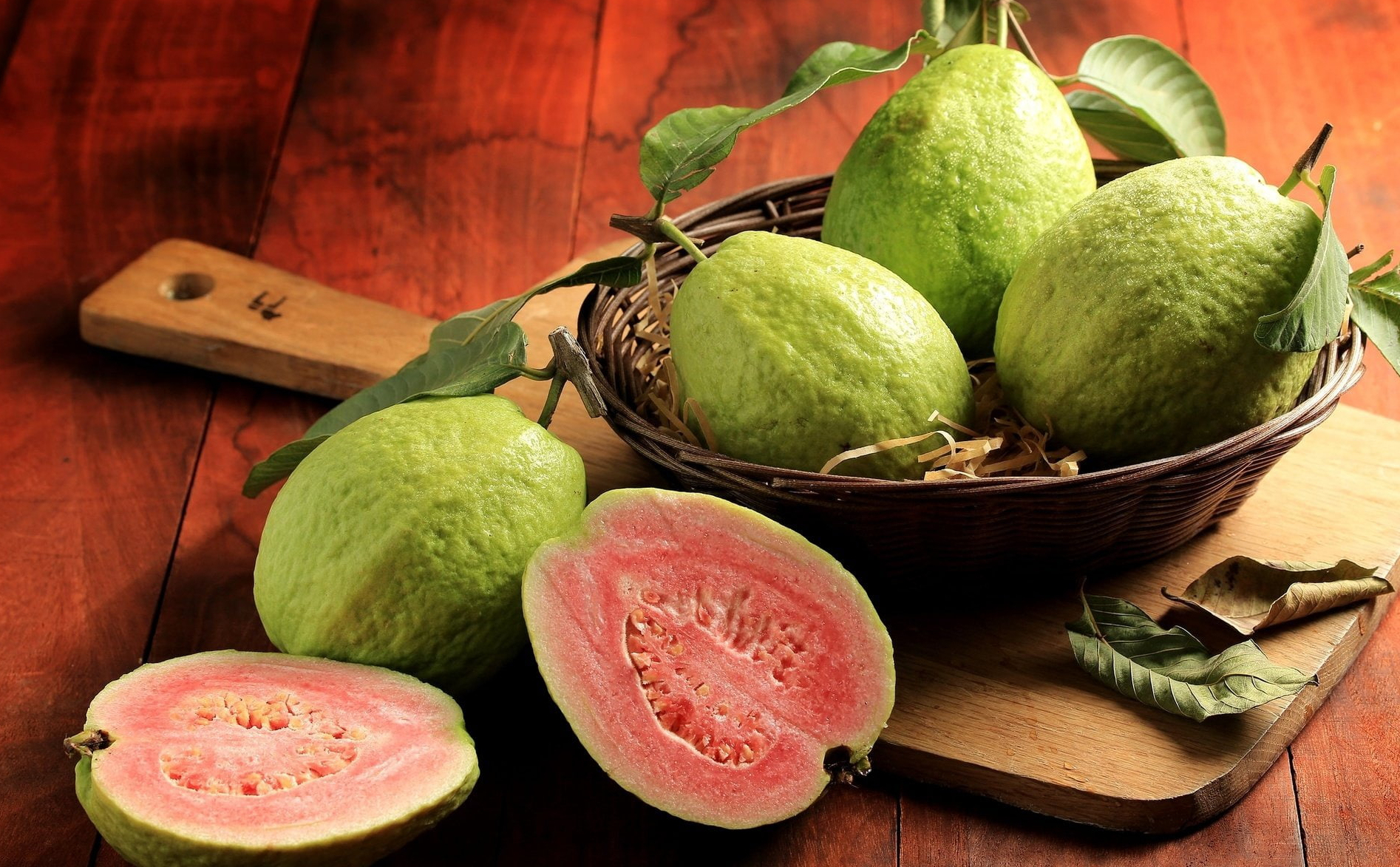The Amazing Guava

If you had not had the chance to enjoy a guava, then put this fruit on your shopping list. When I was a student in West Africa, I would pick this delicious fruit right off the trees on the school grounds. Guavas are a semi-round or pear-shaped fruit, and have an external color of green, yellow, or maroon when ripe.The internal fruit is white or pink in color and contains many small seeds enveloped in a soft, sweet pulp. It is eaten raw and can also be made into a jam. Guavas grow best in hot areas that do not get frost. The USA is the number one importer of guavas, mangoes, and mangosteens in the world, followed not-so-closely by China.
Due to the scarcity of optimal conditions for growing guavas in most of the U.S., most guavas are shipped from the warmer states of Florida, California, and Hawaii. Puerto Rico is also a leading commercial producer of this wonderful, tasty fruit. If you live in one of these states, you should consider growing your own guava tree – it’s not as difficult as you might think, especially if the climate is right. A huge perk of adding guava to your garden and to your diet is that it is among the least chemically-treated and sprayed soft-skinned fruits, unlike apples and grapes. Guava has some amazing health benefits, because it is full of nutrients that your body needs.
- Guavas are very rich in fiber. Fiber helps the body to regulate the absorption of sugar, which affects blood pressure. The naturally occurring sugar found in whole fruits is beneficial and not to be confused with the effects of processed sugar on the body.
- Fiber also affects the digestive system. The high fiber content of guava also helps in the proper formation of stool and guava seeds help to clean the intestinal tract (much as flax seeds do). A person’s total health is very much affected by the digestion and excretory functions of the body.
- Guavas are rich in astringents which have disinfectant and antibacterial properties. If one does a search on PubMed using the scientific name of guava, Psidium, one finds that there are many instances of positive research using guavas to fight infection and bacterial illness. According to this study, more research is needed, but it is possible that compounds from the guava leaf could replace a top antibiotic in fighting infectious tropical illnesses.
- Guavas are high in B3 (niacin) and B6 vitamins. All the B vitamins work together and are responsible for the metabolic and developmental processes that take place in the body. The B vitamins also help strengthen the nervous system and assist in brain health. It is possible that B6 could delay the onset of Alzheimer’s.
- Guavas are also rich in antioxidants. Antioxidants are a major defense against free radicals in the body, which are the main cause of cancers.
- Guavas are high in Vitamin A. Vitamin A is essential for vision health, as well as being one of the above-mentioned antioxidants.
- The high vitamin C and iron content in guavas provides immune support against viruses, such as the common cold. Guavas have five times more vitamin C than oranges! This provides a huge boost to the immune system. Vitamin C is also an antioxidant.
- Guavas are high in potassium, a nutrient which helps maintain and control blood pressure and kidney health.
- Guavas have a large supply of lycopene, which is responsible for the fruit’s reddish hue. Lycopene has been proven to significantly reduce heart disease in woman and to protect men from prostate cancer.
So, how does one pick and prepare guava? Here is a great step by step pictorial- How to Eat Guava. Another great source for learning more about guavas is Nutrition and You. Don’t just take my word for it. Do your research, you will want to add guavas to your shopping list too!

You must be logged in to post a comment.